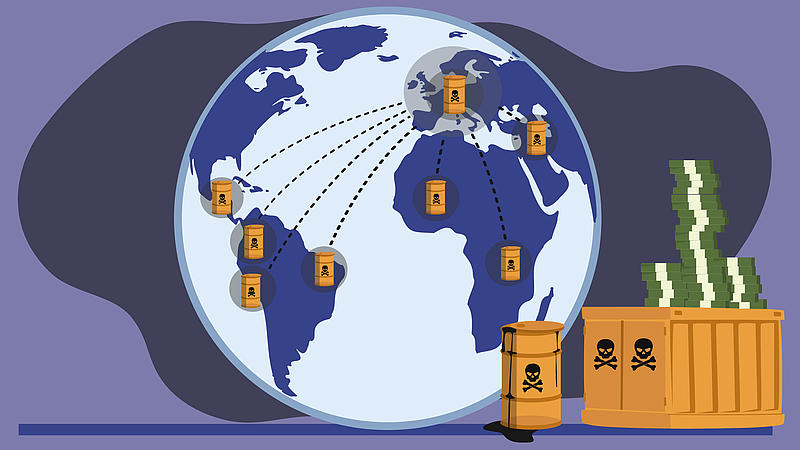A broad coalition of civil society organizations has called on European Commissioner Christophe Hansen, to uphold his commitment to ensuring that food imported into the European Union meets the same safety standards as food produced within the EU. The open letter contains three demands.
The appeal, made in a letter to the Commissioner for Food and Agriculture Hansen, urges the EU to ban the export of banned pesticides and the import of food products containing residues of pesticides that are already prohibited in EU agriculture.
The EU’s Hypocrisy on Pesticides
The Commission has already pledged –through the Pesticide Regulations (2020 revision), the Chemical Strategy for Sustainability, and international agreements – to promote phasing out globally hazardous pesticides no longer approved in the EU, to stop their export, and to consider both human health and environmental risks when assessing limits of pesticide residues in food for trade purposes. Yet, these commitments remain unfulfilled.
Shockingly, EU policies still allow residues of banned pesticides in imported food, while at the same time prohibiting European farmers from using the same toxic substances. The double standard has not only raised ethical concerns but has also put consumer health at risk and created unfair competition for EU farmers.
Contaminated Imports: A Constant Threat
A recent report released by foodwatch Netherlands found that in 2023, 8% of Dutch supermarket products contained residues from 25 banned pesticides.
EU’s Role in Exporting Hazardous Chemicals
Despite banning these pesticides for domestic use, the EU continues to permit their export to third countries, particularly to nations with weaker regulations. In 2018, over 81,000 tonnes of pesticides containing 41 banned hazardous substances were exported from European factories.
For instance, more than 10,000 tonnes of bee-killing neonicotinoid insecticides—banned in the EU to protect pollinators—are still being shipped to lower-income countries each year. The human and environmental toll in these regions is devastating, with severe consequences for farmers, local communities, and biodiversity.
A Call for Concrete Measures
Foodwatch together with Pesticide Action Network (PAN) Europe, Friends of Earth Europe and others—are demanding stronger legislative action. They urge the EU to:
✅ Lower all MRLs (Maximum Residue Limits) for banned pesticides to the default limit of 0.01 mg/kg in imports.
✅ Ban the production and export of hazardous pesticides by European companies.
✅ Ensure equal safety standards for imported and domestically produced food.
The EU Must Lead by Example
The EU Vision for the Future of Agriculture and Food provides a crucial opportunity for change. Civil society groups expect Commissioner Hansen and the European Commission to translate commitments into real policy reforms that protect both European consumers and global food systems.
foodwatch has also launched a petition calling for an immediate stop to the toxic trade.

Stop the Toxic Trade!
Toxic pesticides on our plates: Pesticides banned in the EU are exported – only to return as residues in rice, bananas and raisins.
